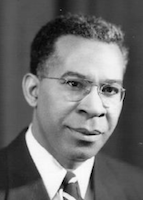Related Research Articles
In economics, the means of production is a term which describes land, labor, and capital that can be used to produce products ; however, the term can also refer to anything that is used to produce products. It can also be used as an abbreviation of the "means of production and distribution" which additionally includes the logistical distribution and delivery of products, generally through distributors; or as an abbreviation of the "means of production, distribution, and exchange" which further includes the exchange of distributed products, generally to consumers.
An ethnicity or ethnic group is a grouping of people who identify with each other on the basis of perceived shared attributes that distinguish them from other groups. Those attributes can include a common nation of origin, or common sets of ancestry, traditions, language, history, society, religion, or social treatment. The term ethnicity is often used interchangeably with the term nation, particularly in cases of ethnic nationalism.

Sociology of sport, alternately referred to as sports sociology, is a sub-discipline of sociology which focuses on sports as social phenomena. It is an area of study concerned with the relationship between sociology and sports, and also various socio-cultural structures, patterns, and organizations or groups involved with sport. This area of study discusses the positive impact sports have on individual people and society as a whole economically, financially, and socially. Sociology of sport attempts to view the actions and behavior of sports teams and their players through the eyes of a sociologist.
Industrial relations or employment relations is the multidisciplinary academic field that studies the employment relationship; that is, the complex interrelations between employers and employees, labor/trade unions, employer organizations, and the state.
Transnationalism is a research field and social phenomenon grown out of the heightened interconnectivity between people and the receding economic and social significance of boundaries among nation states.

Immigration is the international movement of people to a destination country of which they are not usual residents or where they do not possess nationality in order to settle as permanent residents. Commuters, tourists, and other short-term stays in a destination country do not fall under the definition of immigration or migration; seasonal labour immigration is sometimes included, however.

Joe Richard Feagin is an American sociologist and social theorist who has conducted extensive research on racial and gender issues in the United States. He is currently the Ella C. McFadden Distinguished Professor at Texas A&M University. Feagin has previously taught at the University of Massachusetts, Boston, University of California, Riverside, University of Texas at Austin, and the University of Florida.
Harold Wolpe was a South African lawyer, sociologist, political economist and anti-apartheid activist. He was arrested and put in prison in 1963 but escaped and spent 30 years in exile in the United Kingdom. He was a senior lecturer in sociology at the University of Essex between 1972 and 1991 when he moved back to South Africa with his wife to direct the Education Policy Unit at the University of the Western Cape in Cape Town. White rule ended three years later. He died of a sudden heart attack in 1996.

Oliver Cromwell Cox was a Trinidadian-American sociologist. Cox was often misconceived as a Marxist due to his focus on class conflict and capitalism, however, Cox fundamentally disagreed with Marx's analysis of Capitalism. While Marx and other classical economists viewed foreign trade as trade in surpluses, Cox felt that foreign trade was the primary driving force in capitalist development. For Cox, capitalist systems were not isolated, but rather there was an interconnected network of global capitalist systems.
The following events related to sociology occurred in the 1980s.
Michael Parker Banton CMG, FRAI was a British social scientist, known primarily for his publications on racial and ethnic relations. He was also the first editor of Sociology (1966-1969).

The sociology of race and ethnic relations is the study of social, political, and economic relations between races and ethnicities at all levels of society. This area encompasses the study of systemic racism, like residential segregation and other complex social processes between different racial and ethnic groups.
Tom Brass is an academic who has written widely on peasant studies. For many years he was at the University of Cambridge as an affiliated lecturer in their Faculty of Social and Political Sciences and at Queens' College, Cambridge as their Director of Studies of the Social and Political Sciences. For many years he was an, and then the, editor of the Journal of Peasant Studies. Murray reports Brass as being "dismissive of the cultural turn in peasant studies" and the rise of post-modern perspectives and his notion that this has been a conservative process and that it has lent support to neoliberalism.

This bibliography of sociology is a list of works, organized by subdiscipline, on the subject of sociology. Some of the works are selected from general anthologies of sociology, while other works are selected because they are notable enough to be mentioned in a general history of sociology or one of its subdisciplines.

Cultural racism, sometimes called neo-racism, new racism, postmodern racism, or differentialist racism, is a concept that has been applied to prejudices and discrimination based on cultural differences between ethnic or racial groups. This includes the idea that some cultures are superior to others or in more extreme cases that various cultures are fundamentally incompatible and should not co-exist in the same society or state. In this it differs from biological or scientific racism, which refers to prejudices and discrimination rooted in perceived biological differences between ethnic or racial groups. The term has been criticised as being based in moral relativism and enabling systemic or culturally normalised bigotry among minority groups.
Jan Rath is a Dutch social scientist who is holding a chair in Urban Sociology in the University of Amsterdam, the Netherlands. His academic studies have focused on the nexus of urban structures and processes on the one hand and their social, ethnic and religious dimensions on the other. His work is highly cited in the sub-fields related to the problematization of immigrant ethnic minorities, and on urban economies, entrepreneurship, and cultural consumption.

Reproductive labor or work is often associated with care giving and domestic housework roles including cleaning, cooking, child care, and the unpaid domestic labor force. The term has taken on a role in feminist philosophy and discourse as a way of calling attention to how women in particular are assigned to the domestic sphere, where the labor is reproductive and thus uncompensated and unrecognized in a capitalist system. These theories have evolved as a parallel of histories focusing on the entrance of women into the labor force in the 1970s, providing an intersectionalist approach that recognizes that women have been a part of the labor force since before their incorporation into mainstream industry if reproductive labor is considered.
Sheila Patterson was a British social anthropologist who specialised in race, immigration, and race and ethnic relations. She undertook research in South Africa, Canada, and the United Kingdom. From 1971 to 1987, she was editor of New Community, a journal published by the Community Relations Commission.
Michael Goldfield is an American political scientist, author, labor activist, and former student activist. He is an emeritus professor of industrial relations and human resources in the department of political science at Wayne State University in Detroit, Michigan, and a faculty associate at the Harry Bridges Center for Labor Studies at the University of Washington.

Racial capitalism is a concept reframing the history of capitalism as grounded in the extraction of social and economic value from people of marginalized racial identities, typically from Black people. It was described by Cedric J. Robinson in his book Black Marxism: The Making of the Black Radical Tradition, published in 1983, which, in contrast to both his predecessors and successors, theorized that all capitalism is inherently racial capitalism, and racialism is present in all layers of capitalism's socioeconomic stratification. Jodi Melamed has summarized the concept, explaining that capitalism "can only accumulate by producing and moving through relations of severe inequality among human groups", and therefore, for capitalism to survive, it must exploit and prey upon the "unequal differentiation of human value."
References
- ↑ Camfield, David (April 28, 2016). "Elements of a Historical-Materialist Theory of Racism". Historical Materialism. 24 (1): 31–70. doi:10.1163/1569206X-12341453 – via brill.com.
- ↑ Ashe, Stephen D.; McGeever, Brendan (2011). "Marxism, racism and the construction of 'race' as a social and political relation: An interview with Professor Robert Miles". Ethnic and Racial Studies. 34 (12): 2009–2026. doi:10.1080/01419870.2011.595808. S2CID 144619138.
- 1 2 3 4 5 6 7 "University of Glasgow :: Story :: Biography of Robert Miles". www.universitystory.gla.ac.uk.
- 1 2 3 "Bob Miles' Leadership Expanded UNC Study Abroad". UNC Global.
- ↑ See the articles referred to by Miles and Phizacklea: Class, race ethnicity and political action, Black workers and New Commonwealth immigration 1954-1973, and The TUC and black workers 1974-1976.
- ↑ Meer, Nasar (2019). "The Bristol School of Multiculturalism, and the political sociology of identity". Ethnicities. 19 (6): 991–998. doi: 10.1177/1468796819852821 . S2CID 197717270.
- ↑ Werbner, Pnina; et al. (1995). "Book Reviews: Racism after 'Race Relations'". The Sociological Review. 43 (4): 856–907. doi:10.1111/j.1467-954X.1995.tb00722.x.
- ↑ Seltzer, Michael (1984). "Book Reviews, Robert Miles: Racism and Migrant Labour, Routledge & Kegan Paul, London 1982, ix + 202 pp". Acta Sociologica. 27: 69–71. doi:10.1177/000169938402700106. S2CID 143852920.
- ↑ Papademetriou, Demetrios G. (June 4, 1984). "Racism and Migrant Labour. By Robert Miles. (Boston: Routledge & Kegan Paul, 1982. Pp. ix + 202. $9.95, paper.)". American Political Science Review. 78 (2): 542–543. doi:10.2307/1963421. JSTOR 1963421. S2CID 146623626 – via Cambridge University Press.
- ↑ Miles, Robert (1986). Anomaly or necessity: Capitalism and unfree labour (PhD). University of Glasgow.
- ↑ See Capitalism and unfree labour: anomaly or necessity? p. II.
- ↑ "Racism and migrant labour, by Robert Miles. Boston, MA: Routledge and Kegan Paul, 1983, 202 pp. Price: $9.95 paper". Journal of Policy Analysis and Management. 3 (4): 649. 1984. doi:10.1002/pam.4050030480.
- ↑ Bridges, Lee (1985). "Book reviews : White Man's Country: Racism in British politics by ROBERT MILES and ANNIE PHIZACKLEA (London, Pluto Press, 1984). 184pp. £4.95 the Politics of Race in Britain by ZIG LAYTON-HENRY (London, George Allen & Unwin, 1984). 191pp. £6.95". Race & Class. 27: 104–105. doi:10.1177/030639688502700110. S2CID 146645024.
- ↑ Robinson, Kathryn (1990). "Book Reviews : CAPITALISM AND UNFREE LABOUR. ANOMALY OR NECESSITY. Robert Miles. London, Tavistock, 1987. 250 pp. (No price listed)". The Australian and New Zealand Journal of Sociology. 26 (2): 246–247. doi:10.1177/144078339002600210. S2CID 145021283.